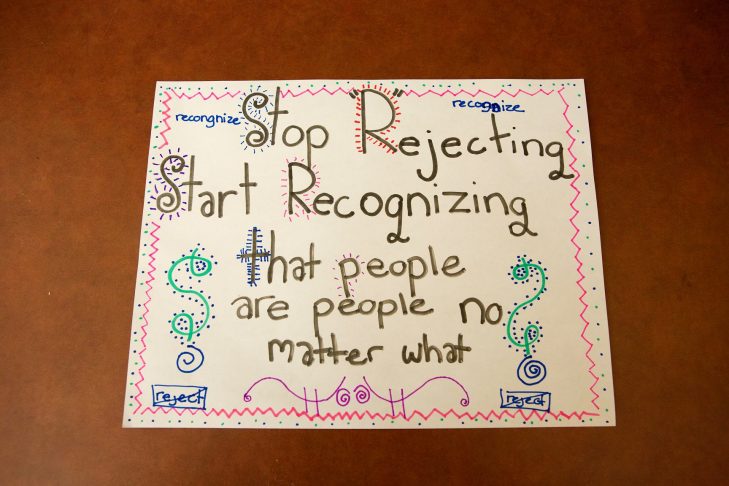Nearly one out of every five people in the United States—or roughly 20 percent of the population—has a disability, and I count myself among them because I am deaf. When I was young, I distinctly remember what it was like trying to find my place in school among all my hearing classmates. Honestly, there were times I did not feel I belonged. Fortunately, my school had a program called Understanding Our Differences (UOD) that taught us about various disabilities and fostered a community of allies for me and for my peers who were also among the 20 percent.
Many years later, while working at a local Boston-area Jewish day school, I wondered how we could bring UOD to my community and to other day schools. After all, in day schools too, about one in five students presents with some disability, and these children and their classmates should have the same opportunity that I and my peers had to develop that powerful sense of mutual understanding and support.
Fortunately, the Ruderman Family Foundation felt similarly and generously funded a pilot of the UOD curriculum in grade 3 classrooms at two day schools, in partnership with Gateways. The program was so successful that we continued to build upon it. After three years of presenting the UOD curriculum in Boston-area Jewish day schools, we began to think about how we could bring developmentally appropriate disability awareness education to students in other grades. Gateways and the Ruderman Family Foundation formally expanded the program to grades K-12 and created Ambassadors for Inclusion (AFI) with the goal of reaching more Jewish schools in Massachusetts and beyond.
I have been privileged to coordinate this effort. Each time I watch a group of students learn about people with disabilities by engaging in Jewish text study, participating in presentations and hands-on activities and interacting with guest speakers, I am reminded of what I felt when I went through UOD when I was young. I can see these students begin to truly comprehend the daily realities and lived experiences of people who are part of their community. They walk away better able to understand how a deaf person communicates with friends, a blind person cooks dinner or a person with diabetes balances their food intake—and so much more. With this newfound awareness, we are empowering a new generation of allies.
We have made tremendous progress toward meeting our expansion goals. In the last year, we have brought AFI to West Hartford, Conn., and Westchester and Port Chester, N.Y., and have launched our disability awareness programming for students across the grade spectrum. In grades 6-8, AFI engages students in facilitated discussions with people with disabilities about topics such as bullying, representation of disabilities in the media and mental health. To reach children in grades K-2, AFI has partnered with PJ Library to develop a curriculum based around age-appropriate disability awareness books, each of which is paired with a teaching guide and activity suggestions. At the other end of the age spectrum, AFI is collaborating with Boston-based Urban Improv to bring hands-on disability awareness programming to high-school students using drama and improvisational activities.
Nearly 40 years ago, a program in my school made me feel less alone and more accepted because it helped my peers understand what life was like for me as a deaf individual. Today, the work of Ambassadors for Inclusion remains essential for our children. We are imbuing them with the core Jewish value of caring for our fellow human beings. Our children will all be connected with family members, classmates, teachers, coaches, administrators or community members with a disability, and it is our responsibility to teach them how to act with integrity, respect, curiosity and humility when they meet people who are different from themselves. I can’t wait to see where we go from here.
Gary Alpert is an educational specialist for Ambassadors for Inclusion.
This post has been contributed by a third party. The opinions, facts and any media content are presented solely by the author, and JewishBoston assumes no responsibility for them. Want to add your voice to the conversation? Publish your own post here. MORE


